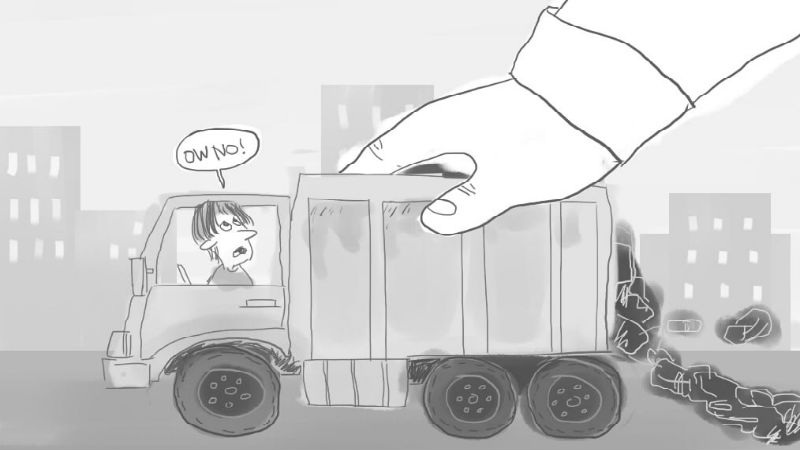Republic Act (RA) 9003 or the Ecological Solid Waste Management Act of 2000 mandates all local government units to close the operation of their open dumpsites and subsequently replace the same with controlled dump facilities or engineered sanitary landfills, or whatever doable solution to help preserve the state of the environment and guarantee the better state of health of the people. The law also defines the role of every household in complying with the mandate of having to segregate the waste at source, not only to help make the job easier for our garbage collectors but also to allow the immediate disposal of the generated waste especially upon reaching the supposed checkpoints. Proper solid waste management also helps in the sustenance of a clean and green environment which has been the source of citations that were issued to the local government in the past.
Under the solid waste management law, local officials who refuse to comply with the provisions of the law for the put up of their own solid waste disposal facilities stands to face the consequences of their hardheadedness. Concerned government agencies can file the appropriate administrative and criminal cases against them before the Ombudsman. In fact, across the country there are already local chief executives and members of their local legislative bodies who were suspended for a certain period due to failure to comply with the pertinent provisions of RA 9003. In the Baguio, La Trinidad, Itogon, Sablan, Tuba and Tublay areas, only Baguio, which opted to temporarily haul garbage, and La Trinidad, which also embraced hauling as a temporary solution to prevent the occurrence of garbage crisis in the two areas, comply. The other local governments remain adamant in complying with the prescribed standards of waste disposal because of the existence of river systems in their place where most of their constituents temporarily dump their waste, which could lead to the bodies of water dying. Much have been done by some local governments to find a permanent and cheaper solution to their existing garbage woes, but their efforts are often confronted with an immediate negative perception even if the proposed technology to help local governments had been proven successful in other areas of the country.
Among the problems being encountered by local governments in finding appropriate solutions include the absence of proven waste to energy technology that is suitable in Baguio and Benguet, the insufficient funds to bankroll the implementation of the needed interventions, the lack of cooperation of the residents in complying with basic solid waste disposal interventions, and the lack of sufficient land area in their areas of jurisdiction for the put up of desired engineered sanitary landfills – which is the best way of addressing the reoccurring garbage crisis.
One of the suggestions to go beyond the boundaries of concerned local governments is for the neighboring LGUs to agree on the establishment of clustered disposal sites that will serve as their common disposal sites, which is also accepted under existing rules and regulations. What is important is the delineation of the duties and responsibilities of the concerned local governments dumping their waste in a common facility to prevent envy in the future that will in turn affect the smooth operation of the facility.
We agree that people have not yet matured in the disposal of their own generated waste. Many of them resort to the illegal dumping, especially onto bodies of water, just to be able to hurdle the stringent rules and regulations imposed by barangays for the collection of waste from their homes. We support the active involvement of barangay officials in making sure that the garbage being brought by the residents to the staging areas in the city’s 128 barangays are properly segregated and that household waste should only be brought out during collection dates. We still must work double time because the grace period for us to comply with the solid waste disposal standards have long lapsed and concerned agencies must take over in making sure that the local governments are improving in the disposal of their generated waste before it affects more than the environment and tarnishes their political careers.
The concerned government agencies are suggested to begin filing the appropriate charges against the local officials who refuse to adhere to the standards of generated waste disposal in their locality. Let us not tolerate the useless acts of the said local officials. It is high time for them to learn the hard way the consequences of noncompliance.
We also agree that hauling is simply a temporary stopgap measure to prevent a garbage crisis but let it not the permanent solution. It drains the finances of local governments, diverting from the implementation of high-impact development projects in their areas of jurisdiction. Instead, the funds are being used to shoulder expenses for hauling waste to a suitable place outside the scope of their areas.















